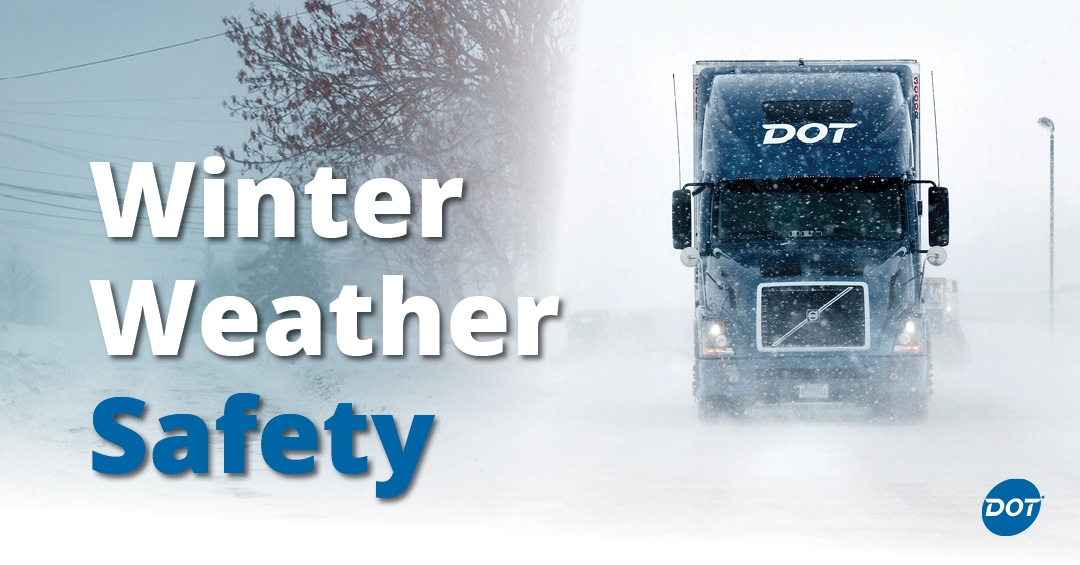When working during the winter months, our drivers face many risks. Some cold-weather dangers are obvious, but others are harder to see. Sometimes you might not even think it’s very cold, but a cold-weather injury can still harm you.
Some winter weather risks to be on the lookout for include hypothermia, slips and falls, and strains and sprains.
Hypothermia
Hypothermia occurs when the body temperature falls below 95 degrees. Dressing accordingly when the temperatures drop is one way to prevent this. This includes:
- Wearing gloves
- Wearing proper headgear
- Changing your socks when they get wet
- Bringing extra clothing and blankets with you on the road
Slips, Trips, & Falls
We tend to see an increase in weather-related slips, trips, and falls. When walking on ice or snow, we suggest using the penguin walk method to help stay more balanced. To do this you need to:
- Turn out your feet to either side slightly to increase your center of gravity
- Bend slightly and walk flat-footed with your center of gravity directly over your feet
- Extend your arms out to your sides to maintain balance
- Take short steps or shuffle for stability
Another preventative method is wearing spare spikes. If you do not own a pair of spare spikes, they are available in the DTI offices and many of the gate stations. Please get a pair. They are perfect to wear while at work or home. They are very easy to put on your shoes and can fit any shoe type. To remind yourself to wear them, keep your spikes in a convenient location in the cab of your truck, such as the side pocket on the driver’s door. Please be aware of your surroundings, as a slip and fall can lead to a serious injury.
Sprains & Strains
Cold weather can also lead to an increase in sprains and strains. Muscle flexibility decreases and blood supply to the extremities is reduced. To prevent sprains and strains, do a 10– to 15-minute warm-up or stretching before activity. You also want to drink plenty of fluids, eat a balanced diet, and stop the activity if you feel an increase in pain, get tired, or feel short of breath. When shoveling snow or doing other work outside, know your limits. Take a break when needed!
If you have any questions regarding winter weather safety, please contact your location’s occupational health trainer or a member of the Safety team.
Apply Today & Discover Your Forever Career
Need More Information Before You Apply? We’d love to talk to you.
